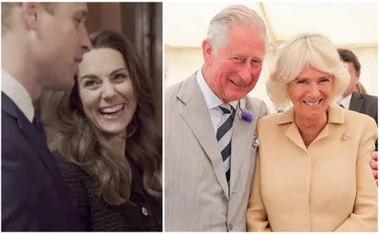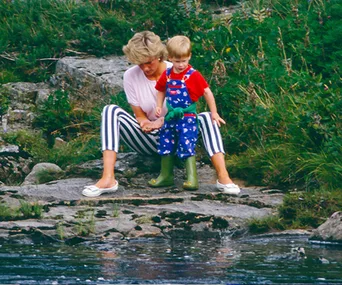This is an edited extract from Meghan: A Hollywood Princess by Andrew Morton published by Michael O’Mara Books RRP $29.99
Sometimes timing is everything. If Meghan Markle had met the man standing before her, casually dressed, hand outstretched in greeting, a couple of years earlier she would have likely smiled, made friendly small talk and moved on. Prince Harry would not have impressed – except as an anecdote to tell her friends.
Of course she would have noticed his ginger hair and beard – her father, half-brother and former husband Trevor Engelson are all strawberry blondes – and that at six foot one inch he is not far off her father’s height, although skinnier and fitter with the rangy, loping gait of a young man who’s spent a lot of time in the great outdoors. But Meghan would have found the early Harry hard work, something of a lost soul.
Looking back, Harry would be the first to admit that, during his twenties, his life had descended into “total chaos”, the prince struggling to process the black cloud of grief that had enveloped his life since the moment he had been awakened from his bed in Balmoral in the summer of 1997 and told that his mother, Diana, Princess of Wales, had died in a car accident.
Though millions of tears had been shed as people around the globe watched the prince, then only twelve, walk behind his mother’s coffin in the televised funeral, only he had been left to pick up the pieces of his life. Not even his brother Prince William, sober, pragmatic and sensible, had been able to reach him at times.
Without a mum, without a steadying, nurturing influence in his life, Harry had gone off the rails. He became notorious as an angry drunk who lurched out of London nightclubs, ready to lash out at the loathsome paparazzi who dogged his every footstep.
For years he was carefully protected by highly paid public relations professionals who smoothed over his public escapades. So when, in February 2004, Harry was branded a ‘national disgrace’ and a ‘horrible young man’ by influential columnist Carol Sarler over his late-night shenanigans, Prince Charles’s communications director Paddy Harverson swung into action.
Harry flew to Lesotho and was photographed with a little orphan called Mutsu Potsane, Harry speaking of his deep shock about the impact of AIDS on the country. The trip was followed up by royal aides helpfully releasing a letter he wrote to patients in a hospital unit dealing with the victims of rape and abuse.
It was a classic public relations exercise, utilising Harry’s evident personal qualities – an easy-going manner, fundamental decency and a sense of fun – together with his mother’s humanitarian legacy to project a different narrative about a young man best known for his nightclubbing.
Obsessed with the royals? Like our Facebook page Now To Love Royals for the latest news on your favourite royal family members!
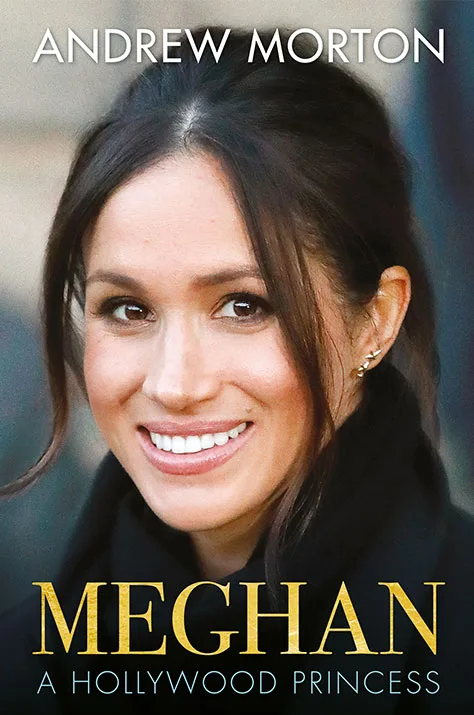
For many years this was the go-to template for the prince, any night-time indiscretions more than compensated for by his charity work and his life as a professional soldier, serving for a time in Afghanistan before training to fly Apache helicopters. In Prince Harry’s world there has always been someone to do the sweeping-up.
When he dressed up in a Nazi uniform for a Colonials and Natives fancy-dress party shortly before Holocaust Memorial Day in 2005, his minders accepted that it was a ‘poor choice of costume’ but insisted that there was no malice in his decision. Similarly, when he was caught on video referring to a fellow officer cadet at Sandhurst as “our little Paki friend” and another as looking like a “raghead” (a pejorative term for an Arab), once again his PR minder Paddy Harverson came to the rescue.
If Meghan had been in his life at that time, she would not have been impressed by his casual racism. Nor were others. “He was a very lost young man,” a former royal official told me. “Harry was deeply troubled, unhappy and immature, imbued with the slanted, quietly racist views of those from his class and background.”
Perhaps the low point in Harry’s party lifestyle came in 2012, when he was pictured cavorting naked in a Las Vegas hotel room during a game of strip billiards with a bunch of strangers, some of whom had camera phones and helpfully uploaded his antics for the startled world to watch. “Too much army and not enough prince,” was his rueful response.
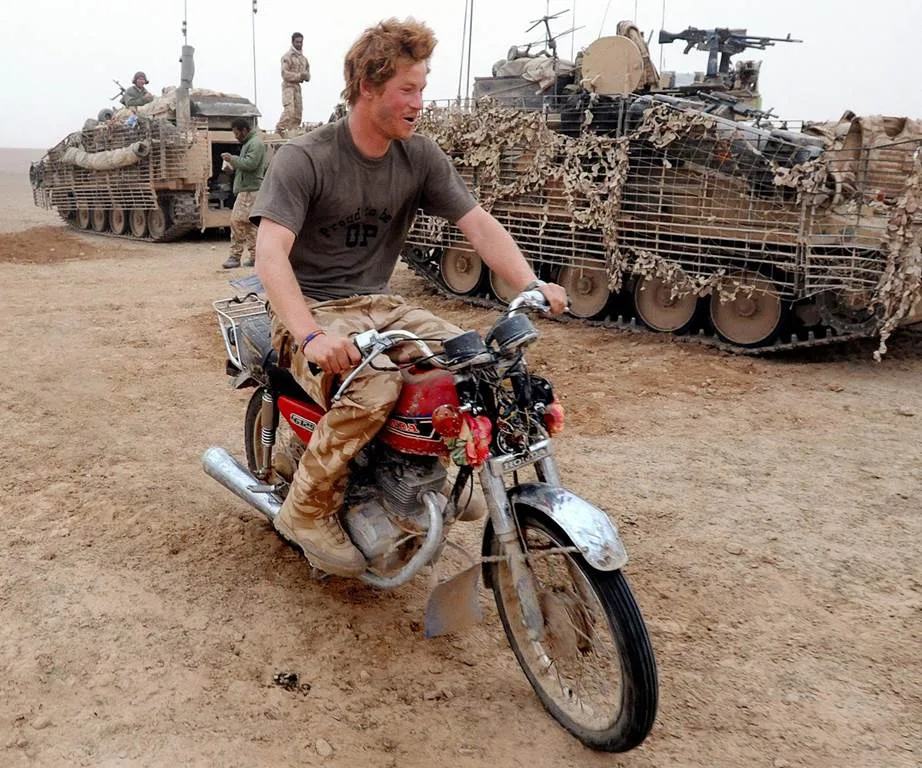
“Harry was deeply troubled, unhappy and immature, imbued with the slanted, quietly racist views of those from his class and background.”
In spite of the uproar, by and large the prince retained the affection of the public, who instinctively sympathised with the emotional difficulties he and his brother had gone through with their parents’ bitter divorce and their mother’s untimely death.
The difference between them was William’s more grounded temperament and, later on, his having the support of a sensible and stable wife to see him through the dark nights of the soul. The younger brother found a curious respite from his demons and a sense of purpose during his time in the Army. He is not the first, nor will he be the last, young person who has been given direction and discipline by the military.
There was one episode in particular that had a profound impact on the course of his life. At the end of his first tour of duty in 2008, on a flight home from Afghanistan he travelled with the coffin of a dead Danish soldier, which had been loaded on board by his friends, as well as three British servicemen, all in induced comas, who were being transported with their missing limbs, wrapped in plastic. That flight set him on the trajectory that would culminate in the Invictus Games.
“The way I viewed service and sacrifice changed forever,” he recalled in his speech to open the 2017 Invictus Games. “I knew it was my responsibility to use the great platform that I have to help the world understand and be inspired by the spirit of those who wear the uniform.”
WATCH: The carriage Meghan Markle and Prince Harry will use on their wedding day. Post continues…
The prince’s idea was to combine his royal connections, his lifelong interest in the armed forces, and his passion for humanitarian causes into one focused event. The Invictus Games are an international multi-sport jamboree in which sick, wounded or injured servicemen and women compete in a variety of sports such as indoor rowing and wheelchair basketball.
In September 2014, after a year of planning and meetings, the first games, which involved three hundred Army personnel from around the world, were held in London.
The games were a triumph, giving the prince, who was due to leave the Army in 2015, new focus and impetus. He was fully committed to using his unique position to help and encourage those who were at the sharp end of modern warfare, veterans who had been damaged and injured but who were prepared to fight on, albeit on a basketball or tennis court.
The Invictus Games were the making of Harry. “Since then he has become the man he is today,” observes a former royal courtier. “It has not been an easy process. He has become more open and developed into someone who genuinely cares about social issues.”
The experience opened up something in Harry, and increasingly, he became happy to talk about his personal hopes and dreams, too. His conversations, public and private, were peppered with talk of the princely problem of finding a partner, of settling down and raising a family.
It was clear that he had reached a crossroads in his life and that his days of sowing wild oats were coming to an end. As the rest of his friends were settling down and starting families, it seemed that Prince Harry was in danger of becoming the last man standing. He had seen his brother enjoying the simple joys of family life and wanted that experience for himself.
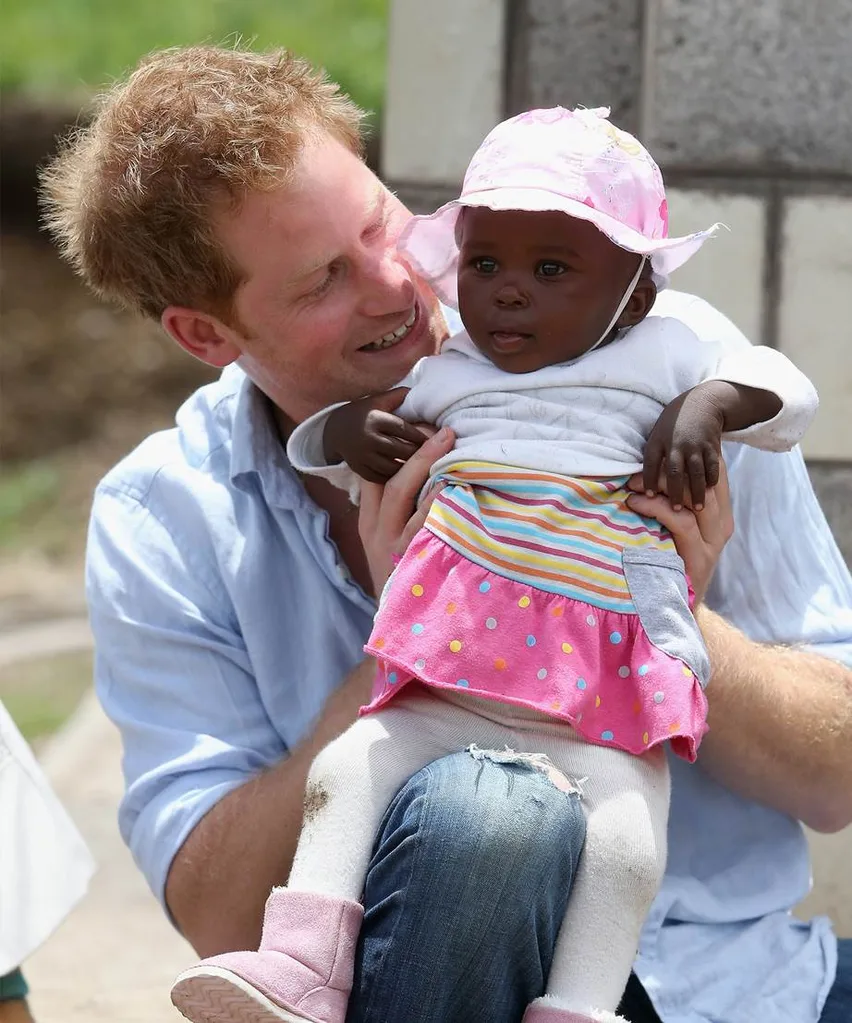
After a dark chapter, Prince Harry realised he wanted to settle down.
At a birthday party in February 2016, he told TV presenter Denise van Outen, “I’m not dating and for the first time ever I want to find a wife.” It became a familiar refrain. Three months later, when he was in Orlando, Florida, for the Invictus Games, he again brought up the subject of love and marriage during an interview with the Sunday Times.
“At the moment my focus is very much on work but if someone slips into my life then that’s absolutely fantastic. I am not putting work before the idea of family and marriage. I just haven’t had that many opportunities to get out there and meet people.”
The difficulty of finding someone “willing to take me on” was an issue that was always at the back of his mind every time he met someone new. Were they attracted to him for his personality or his title? As one of his friends pointed out, “You have to be a very special kind of girl to want to be a princess.”
As Meghan Markle nestled back in her seat in preparation for landing at Heathrow Airport, she had love and marriage on her mind. The actor was returning from a long weekend on the Greek island of Hydra, once home to the lugubrious poet and singer Leonard Cohen.
It had been several days of wine, red mullet, hummus and incredible yoga moves as Meghan, her best friend from college, Lindsay Jill Roth, and Lindsay’s bridesmaids discussed wedding dresses, veils, flowers, the past and the future.
Meghan’s relationship with celebrity chef Cory Vitiello had ended recently, withered on the vine as both their lives became busier and busier, and Meghan relished time away from Toronto and the house they had shared there.
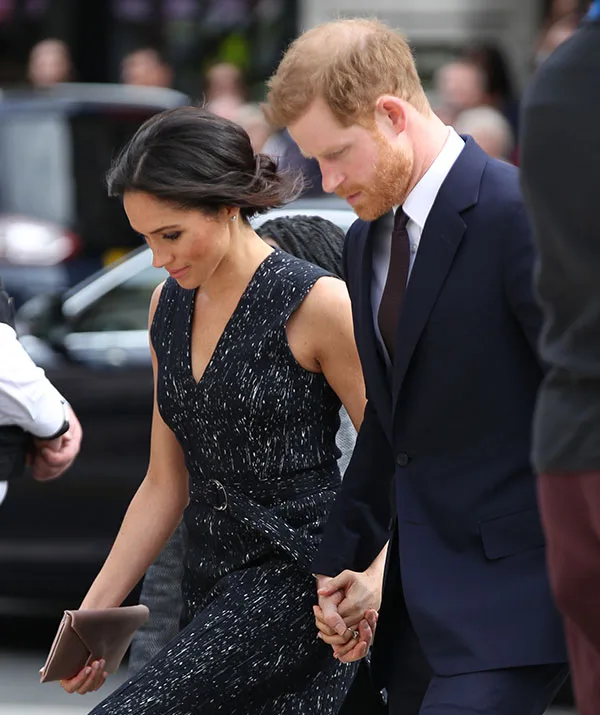
“You have to be a very special kind of girl to want to be a princess,” one of Prince Harry’s friends explains.
